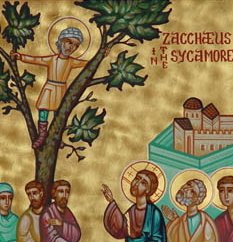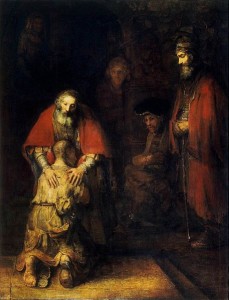Does this image offend you? If it does (and it challenged me) it ays more about your state than it does about Jesus.
Faith and relevance in the 21st century
 Excellent piece here from my friend and colleague David Wilson on the fallout of the Lance Armstrong affair. Reminds me of what Alexander Solzhenitsyn once said:
Excellent piece here from my friend and colleague David Wilson on the fallout of the Lance Armstrong affair. Reminds me of what Alexander Solzhenitsyn once said:
“Gradually it was disclosed to me that the line separating good and evil passes not through states, nor between classes, nor between political parties either — but right through every human heart — and through all human hearts. This line shifts. Inside us, it oscillates with the years. And even within hearts overwhelmed by evil, one small bridgehead of good is retained. And even in the best of all hearts, there remains … an un-uprooted small corner of evil.”
Recently ex-porn producer Donny Pauling was in Melbourne talking about the reality of what goes on behind the scenes in the porn industry. Here are some of the frightening facts that he and others from an organisation called Guilty Pleasure presented:
This and other information can be found in the video below:
[vimeo https://vimeo.com/33375303 ]
 John 21:15-19 is possibly the most profound story in the whole Bible. It shows the simply, well ‘extravagant’ is too small a word for it, grace of God to sinners like you and me. Jesus deliberately singles out Peter and purposefully asks him three times if he loves him. This is not a sign of neurotic insecurity from Jesus, having to ask three times if one of his best friends loves him. It is a declaration of forgiveness of the highest order.
John 21:15-19 is possibly the most profound story in the whole Bible. It shows the simply, well ‘extravagant’ is too small a word for it, grace of God to sinners like you and me. Jesus deliberately singles out Peter and purposefully asks him three times if he loves him. This is not a sign of neurotic insecurity from Jesus, having to ask three times if one of his best friends loves him. It is a declaration of forgiveness of the highest order.
It follows directly Peter’s denial of Jesus three times on the night of Jesus’ greatest need. On the darkest night of Jesus’ life, a night so dark that no one before or since has had to endure anything like it, Peter deserted him. Ever the outspoken one, always quick to declare his undying loyalty to Jesus during their three years together, Peter fails when the true test of his loyalty faces him.
The extravagant forgiveness of Jesus as a new day dawns by the Sea of Galilee – a new day in a truer sense than even the disciples probably then realised – is simply mind boggling. The interesting thing is how Jesus forgives Peter. He does not simply tell Peter that it’s ok, don’t worry about it. Many translations put a heading above this story called ‘Jesus reinstates Peter.’ I don’t think this goes even far enough. Jesus actually gets Peter to step up to the plate. He forgives him by commanding him to be a leader in spreading the Good News that he is now receiving, and to look after the new movement that is about to change the world forever.
When a person in a leadership in a church confesses something terrible they have done, the usual step is to get them to step down from their position for at least a time. This occurs even if the person is fully repentant. You see it over and over. But as we see in this incredible passage, it is not the way of Jesus. Instead of getting Peter to step down, Jesus gets him to step up. He affirms Peter, telling him that he will be one of the main leaders in the fledgling movement.
 I recently received a simply beautiful text message from a friend of mine who I have been journeying with. He told me how he sensed that God was working through me, despite dark times in both of our lives this year. I find it simply staggering that God works through even me, in my brokenness. I don’t mean that in a negative sense, like I am worthless and why would God even bother. I mean it in a sense that God is so good, the depth of his goodness is so deep, deeper than we can ever imagine, that he chooses – chooses – to work through people as stuffed up and broken as I am.
I recently received a simply beautiful text message from a friend of mine who I have been journeying with. He told me how he sensed that God was working through me, despite dark times in both of our lives this year. I find it simply staggering that God works through even me, in my brokenness. I don’t mean that in a negative sense, like I am worthless and why would God even bother. I mean it in a sense that God is so good, the depth of his goodness is so deep, deeper than we can ever imagine, that he chooses – chooses – to work through people as stuffed up and broken as I am.One of the things we tend to lose when we focus so much on following Jesus is the fact that he died for our sins. We lose sight of the forest for the trees. Jesus’ death on the cross served a number of purposes, which are ultimately tied to the fact that he died for the sins of the world.
 Sin has long been a dirty word in much of the church. It smacks of condemnation and conjures up images of hellfire and damnation. But what Jesus did in dying on the cross for our sins is just the opposite. Think of the worst things you’ve ever done. Sin has consequences; that’s just the way life is. We really do reap what we sow. If we sow destruction, we reap it; if we sow peace and love, we reap that. Sin in my life has produced tears, pain, agony, shame and despair. How can anyone not take that seriously? How can anyone dismiss that as not so bad? Anyone who does is not in their right mind. A definition of insanity is doing the same thing over and over and expecting a different result. If we don’t take our own sin seriously and want to get as far away form it as possible, we will inevitably make the same mistakes again and again.
Sin has long been a dirty word in much of the church. It smacks of condemnation and conjures up images of hellfire and damnation. But what Jesus did in dying on the cross for our sins is just the opposite. Think of the worst things you’ve ever done. Sin has consequences; that’s just the way life is. We really do reap what we sow. If we sow destruction, we reap it; if we sow peace and love, we reap that. Sin in my life has produced tears, pain, agony, shame and despair. How can anyone not take that seriously? How can anyone dismiss that as not so bad? Anyone who does is not in their right mind. A definition of insanity is doing the same thing over and over and expecting a different result. If we don’t take our own sin seriously and want to get as far away form it as possible, we will inevitably make the same mistakes again and again.
 Here is a modern Australian reading of Luke 19:1-10:
Here is a modern Australian reading of Luke 19:1-10:
Jesus entered Western Australia and was passing through. A man was there who was a very wealthy mining magnate. He had heard about Jesus and wanted to see who he was.
When Jesus saw him he said to him, I must stay at your house today. The mining magnate couldn’t believe his ears and welcomed him gladly.
All the people, especially those who were strong social justice activists, saw this and began to mutter, “He has gone to be the guest of a mega-rich mining magnate. If he really cared about the little people, he would know what sort of character this person was.”
But the mining magnate stood up and said to the Lord, “Look, Lord! Here and now I give half of my wealth and earnings from my mines to the poor, and if my mines have been detrimental to the lives of people or to the environment, I will close them and pay back four times the amount.”
Jesus said to him, “Today salvation has come to this house, because this man too has a high place in my kingdom. For the Son of Man came to seek and to save what was lost.”
Jesus always surprises us. My wife and I have spent the last 12 years in a poor inner-suburban church which is doing well if it has $1,000 in the bank. We are social justice types who also have a passionate concern for the environment. Call us hippie lefties if you like, but I would rather be known as a follower of Jesus who struggles and many times fails to live up to the life that he calls us to.
I get angry when the mega-rich whinge about their rights and how they’ve got it so difficult. When I hear them say such things, I wish they would get a dose of reality. But then I read the story of Zacchaeus and see my own reverse snobbery. We love to pin the rich up against the wall – and most of the time they deserve it – but we have no right to judge them as if we are somehow better.
Jesus never does this. He always pulls the rug out from underneath us and exposes our character flaws. That’s why you can never put Jesus in a box. If you try to paint him as someone who is more left-leaning than most, he reminds you of how he related to Zacchaeus. And if you try to place him amongst the moral majority who decry the declining values of our culture, he reminds you of the woman who knelt at his feet and poured expensive perfume on him whilst those standing around condemned her for not spending the money on the poor.
You see, Jesus is never about issues; he is always about relationship. The kingdom is never about values; it is about relationship. Jayakumar Christian, National Director of World Vision India, has spent 30 years working amongst the poor of that vast land, and he says that the thing he sees the most is that the gospel is about relationships. It is not about causes or values or issues; it is personal in every way, including in its take on social justice. Real justice is personal, it is never separate from relationship.
One of the reasons I love Jesus – and one of the reasons I sometimes want to avoid him – is because he can never be pinned down. Whenever we think we know what he is on about, he surprises us. But in doing so he never condemns us, never condemns anyone. That’s why I can trust him, and that when I am challenged by him. I don’t have to run away, because all he wants to do is show me what is best, show me that his ways are not my ways, and that he is ultimately trustworthy. We can read the gospels a hundred times over and still be shocked by the outrageous, counter-cultural, unconditional, life-affirming, comfort-shattering love of Jesus. Our response to such actions of Jesus as is seen in the story of Zacchaeus or its modern equivalent of a mega-rich mining magnate says more about us than it does of Jesus or the mining magnate, or whoever else you want to put in the story.
Kenneth Bailey, author of Jesus Through Middle Eastern Eyes, also makes the crucial point that in offering to spend such intimate time with Zacchaeus, a hated Roman collaborator, Jesus turns the hatred of the crowd from Zacchaeus onto himself. This is one of the real points of this story. Jesus always shows his love and grace at his own expense.
Bailey also points out that, once again, the transformation Jesus gives is complete. It is not just about the transformation of Zacchaeus from a wealthy money-grubbing hoarder into a beautifully generous human being; the transformation also has wider implications for the village he lived in. The people there would no longer be oppressed and ripped off by this former Roman collaborator. God’s grace came to everyone that day, not just to Zacchaeus’ house.
Jesus’ love is real; it is costly and it is sacrificial, as real love always is. By calling out to a hated tax collector, Jesus took the crowd’s hatred of this despised person onto himself. In the process, both Zacchaeus and the villagers are all freed. How would we respond today if Jesus wanted to share an evening in the lavish home of a wealthy mining magnate, enjoying their company over a nice meal and a few red wines? Would the social justice types among us question whether or not this was the real Jesus – friend of the poor – or just an impostor? Would others of us be smug in our seeming affirmation that God really is about prosperity? Or would we question ourselves instead, suddenly realising that we assumed we had Jesus all to ourselves?
Jesus caused a crisis everywhere he went. Just when we think we have him right where we want him, he shocks us, and reminds us again that we can never paint him into a corner. If a well-known multimillionaire walked into your church, how would they be received? Would we welcome them with open arms, or would we think, “what are those rich *&%^/*%&%^ doing here?” Jesus loves the mega-rich just as much as he loves you and me and the poorest people on the planet. God help me to be the same.
 We live in a world of immense suffering, and whether we call ourselves Christian or not, we are often faced with the universal question of why such suffering occurs in a world which was made by a good and loving God.
We live in a world of immense suffering, and whether we call ourselves Christian or not, we are often faced with the universal question of why such suffering occurs in a world which was made by a good and loving God.
At Easter we remember that when Jesus was dying on the cross, he also asked why, and said “into your hands I place my spirit.” It was an act of trust that God is good despite what we see around us.
In our society we are bombarded with the message every day of our lives that life is found in having more. Gordon Gekko’s ‘greed is good’ mantra from the heady days of the late 1980s is the philosophy we are encouraged to live by today. Yet study after study shows that ‘money can’t buy me love’, as The Beatles sang fifty years ago. The American psychologist Martin Seligman has conducted research showing that the rate of depression in Western nations has increased tenfold since the Second World War ie. we now have ten times the amount of people who are depressed than we had seventy years ago. On top of that, Brene Brown points out that we are the most in-debt, obese, addicted and medicated people in history. All this is during a period in which we have never been wealthier. Something is not adding up; it looks suspiciously like we have been sold a lemon.
And if that is not enough, our affluent way of life is leading to a greater gap between rich and poor, as well as to the dreaded spectre of a changing climate. Jayakumar Christian, National Director of World Vision India, says that while everybody talks about the booming Indian middle-class, with economic growth rates of 7-8%, no one talks about the growing gap between rich and poor in that vast land, and the fact that there are 836 million poor people in India. And you just need to talk to just about every climate scientist as well as every aid and development worker in places like Africa to learn about the effects that climate change is already having on their farming practises. No wonder the author and pastor Brian McLaren calls our way of life the ‘suicide machine.’
It’s all depressingly bleak, and enough to drive you to despair. But despite all this, we don’t have to be stuck in that mindset. The comfort we can find at Easter is that Jesus identifies with our pain and with our questions. But it’s more than that. If that is all he did, we wouldn’t have any hope. Thankfully we are told that in Jesus, God came to earth not only to die for our wrongs, but to reconcile all things to himself. But again, if that is all there is, there still wouldn’t be any hope. The New Testament is open about this. The apostle Paul says that if Christ was not raised from death we are to be pitied more than anyone. Christian faith lives or dies on the physical resurrection of Jesus as a historical event. If Jesus was not raised, then Christian faith is pointless, as death would not have been defeated and life is meaningless. But our joy and hope come from faith in Jesus, that as well as dying on Good Friday, he was raised on Sunday. As Nick Cave sings, death is not the end. And, as only he can, American preacher Tony Campolo adds, “it’s Friday but Sunday’s a-comin!”
Hope is alive. There is no line on the horizon; heaven and earth are slowly overlapping. There is no reason to despair and there is nothing to fear. The Christian message says that it is because of the resurrection of Jesus on that first Easter morning that we have hope that death will not triumph in the end. Life, justice, peace, hope and love will triumph. Nothing is surer. And it is all because God came and dwelt among us and defeated the scourge of death.
Through the life, death and resurrection of Jesus, we are shown how to live, we are offered forgiveness for our many wrongs, and all things are reconciled to God. All things. Our hearts, so we can be at peace with God; our society, so we can live at peace with each other; and the rest of the whole created order, so we can live at peace with it. To the question of why God doesn’t seem to be doing anything about the suffering and pain in the world, we can assuredly say that God already has. Through the life of one man, we see a glimpse of the wonderful kingdom come; through the death of that one man on a dark Friday afternoon, we are offered forgiveness for our wrongs; and through the resurrection of that one unique man on the most wonderful Sunday morning in history, all things are made new.
What we remember at Easter is what drives us; it is what drives our continual struggle for a better world, for peace on earth, for shalom. One day there will be no more tears; one day there will be no more pain, no more ‘stupid poverty’ as Bono calls it, no more war and no more injustice. One day everything will fit; it will all make sense. And it will all be because of Jesus. And we get to live this resurrection life here and now, working with God to renew the world, living out the compassion of Jesus, and standing in the tradition of the prophets to work for a world in which one day everything will be made complete. That is the hope of Easter. May you have a blessed one.
 In this movie set in the beautiful islands of Hawaii, George Clooney plays brilliantly the role of Matt King, the father who could probably relate a bit to the suffering of Job. His wife has just had a boating accident, is in a coma and is about to die. He then finds out that she had been having an affair. And to top it off, the guy she was having an affair with is about to make a bucketload of cash on a property sale that King is working out with his family.
In this movie set in the beautiful islands of Hawaii, George Clooney plays brilliantly the role of Matt King, the father who could probably relate a bit to the suffering of Job. His wife has just had a boating accident, is in a coma and is about to die. He then finds out that she had been having an affair. And to top it off, the guy she was having an affair with is about to make a bucketload of cash on a property sale that King is working out with his family.
The Descendants portrays the dignified response of a man and his family who are experiencing immense suffering. Despite his impending loss and and recently exposed betrayal, King conducts himself with honour, confronting the man who was sleeping with his wife and allowing him to pay a last visit to her on her death bed. King could have punched his lights out, but he didn’t. And, regarding the property deal, in the end he allows virtue to triumph over cold hard cash by scuttling the deal through his refusal to sign the relevant documents for the sale. King chooses the right way over the more tempting and exciting profitable way. He chooses to keep the property in the family, as the family’s descendants would likely have wanted, much to the chagrin of his cousins who are gobsmacked at his seemingly irrational decision.
This movie shows that character is more important, long-lasting and satisfying than quick gains and cheap shots. King’s seventeen year old daughter, Alex, is also impressive as she follows the example of her Dad in her quickly developing maturity. She lovingly looks after her younger sister, Scottie, and helps their Dad track down the infidel who has been sleeping with his wife. Alex’s immature friend, Sid, is another one who goes through a redemption of sorts as he realises the lack of tact of some of his earlier comments – particularly to Elizabeth’s parents – and pays the price for it. Being a young man about to enter early adulthood, Sid could have chosen to remain defiant and be stubborn and do things his way. But instead he learns from his mistakes and becomes a valuable support to King and the family, to the point that King himself comes to him one night to ask his advice about how to handle his multiple life challenges.
I have been reading Proverbs recently and, as many would know, there is plenty of great advice in that marvelous book about living a life of wisdom. I remember when I read the early chapters of Proverbs as a young man myself, that I had the profound realisation that that is the type of person I want to be. The main characters in this raw and emotional movie provide a real-to-life example of living out much of the sage advice of Proverbs to young men, and indeed to people of all ages and backgrounds.
Dignity, relationship and virtue are the enduring qualities of life. They are what will ultimately win out. They are what will triumph over short-term gain, revenge, and quick riches in the end, if not in this present life. The Descendants is testament to the riches of the wisdom of Proverbs over the riches of this life, which will pass away and prove worthless in the end. Recommended.
 Some telling comments on forgiveness:
Some telling comments on forgiveness:
“ Counselors tell us to forgive people lest we become embittered and twisted. Thus forgiveness itself becomes a fashionable therapy, all about me.” – Kim Fabricius in Ben Myers’ blog
And this from Tim Gombis:
“Forgiveness is so profoundly powerful and beautiful… Forgiveness doesn’t ask for guarantees… Forgiveness takes the risk… Forgiveness doesn’t fix everything… Forgiveness doesn’t guarantee a Disney ending… Forgiveness doesn’t clean up the whole mess… Forgiveness remains difficult, complicated, risky, and profoundly beautiful.”
This is so powerful, and central to how we view the Gospel. So often we see the benefits to us in living the way of Jesus, thereby making it all about us. It’s the same with the idea that we can’t love others until we love ourselves; it subtly turns it around to make it all about me, which is the very antithesis of the Gospel. As someone said once, Jesus spoke about self-denial, not self-fulfilment. The paradox is that we do gain life by denying ourselves, taking up our cross and following Jesus, but that is a by-product, it is not the end goal. When we make it the end goal, whether consciously or sub-consciously, we are not being loving.
I really like Gombis’ take on forgiveness. Forgiveness forgives regardless of the outcome, whether the person accepts the forgiveness or not. I think a major reason we have got ourselves into the mess of subtly turning the Gospel around is because of a misguided theology that talks about rewards and ‘crowns’ in heaven. In a self-obsessed culture, we have made the Gospel the same, but just in a more subtle way that is done in the name of love.
This is probably why a friend of mine gets blank looks from his theological students when he talks about taking up the cross. They have probably never been taught about unconditional commitment to Jesus. I have particularly found as I have read the Gospels and the letters of Paul that suffering is a way of life and that commitment and perseverance is what is stressed. Hebrews also talks about the heroes of the faith (Hebrews 11) who didn’t see what they wanted but who fought the good fight anyway. They did it because the followed Jesus, because it was right.
The irony of taking up the cross and following Jesus is of course that we do have joy – the joy that is not dependent on circumstances, and the contentment that Paul talks about. Something I realised recently was that Jesus spoke about the joy that he had just after he was betrayed by Judas at the Last Supper (John 15). I find that fascinating. Peter also speaks about joy unspeakable to a people that were apparently suffering greatly, and James talks about counting it all joy when you suffer all kinds of trials. Not what you hear in today’s society, including most of our churches.
The point I am trying to make is that joy is a by-product of following Jesus. Love is always pointed towards others. It is self-denying, self-sacrificing, and in the process, life-giving. Forgiveness is of course about love; it is about wanting the other to be reconciled, so that they can know life. The joy we gain from that can then be shared. We don’t do it to get joy; we do it out of care.
Of course this is often misunderstood by many Christians as being morbid when God wants us to enjoy life. I agree that God wants us to enjoy life and to experience His joy. But joy is never gained when we seek it. The great paradox of Christian faith is that we die to live, that joy comes out of dying.
© 2026 Soul Thoughts
Theme by Anders Noren — Up ↑